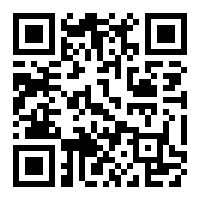Banking the unbanked has a terrible track record. And I don't see anything different here with Libra. Only government entities can provide the coordination, oversight, and protections for borrowers from creditors that charge usurious interest and from the raging public who, more often than not, blame the poor for pretty much everything.
A few days ago, David Marcus, Facebook’s VP of Messaging Products, former PayPal president, and current board member at Coinbase revealed a new Facebook product called Libra in a series of tweets. Libra is a blockchain-based stablecoin: a cryptocurrency backed by things that don't fluctuate wildly in price. For every Libra issued by the Libra Association, there will be a reserve of bank deposits, bonds, and so on, somewhere in custody and managed by the media giant slash its partners. Think of it as a private digital product that represents money, of which will function pretty much like tether- the stablecoin issued by the crypto exchange Bitfinex. It's not clear whether 1 Libra will equal 1 US dollar, since the reserve might be composed of things denominated in other currencies.
Here's how it unfolded:
David proclaims that their token will be globally empower billions of people. This sounds so familiar...
Well, there are plenty of protocols for money on the Internet. Ah, but it's about banking the unbanked. I get it.
So they formed an association, a nonprofit spun up to “govern” the Libra network, which David believes will become “a public good for the world.” Partners include Mastercad, PayPal (of course), Stripe, Visa, Bookings Holdings, ebay, Farfetch, Lyft, Spotify, Uber, Vodafone Group, Anchorage, Coinbase, a16z, Kiva
(I’ll speak to this one in a second), and even Women's World Banking (who aim to empower low-income women around the world through financial inclusion). This is a stacked roster of organizational, financial, and technical support.
One interesting point was this:
Calibra is Facebook’s “regulated” entity, whatever that means. David claims that his team doesn’t want to create any privacy concerns. Of course, a social media giant having access to a massive quantity of financial data (if their currency gains traction or if they plug into the modern banking system) would pose an economic threat to this planet. We already have a ton of problems in finance, and adding Facebook to this pile is now making me think we will never actually repair the mistakes we have made over the last 50 years via modifications to our financial system.
But getting back to the last tweet. The Libra Association, the organization that will govern the Libra network, will have Facebook sitting among a group of equals? Regulators, are you watching and listening? I have a hard time believing Facebook won’t be in full control of this technology when they roll it out, especially if it's generating data to be monetized. More importantly, they are only at the prototype stage, using a technology that has yet to really make any money (other than speculative gains) due to scalability issues.
They are using a permissioned “scalable” blockchain. So they are not embracing the ethos of bitcoin or ethereum, which are more decentralized, public networks maintained by a mosaic of people around the world. A permissioned system would be easy for Facebook to roll out… it will sit on servers scattered around the world in the company’s massive data centers. They are even rolling out a new programming language called "Move".
But ultimately, all Libra will be is a “medium of exchange.”
How does a medium of exchange alleviate poverty?
Well, David believes that accessible, cheaper, and more open financial services for people, regardless of location, occupation, citizenship, or net worth, will serve to help the unbanked- which is conceptualized in the context of poverty alleviation and economic development. Access to banking is, indeed, a problem facing many people around the world. This includes a large fraction of American citizens living in the United States.
To learn more, I dove into Libra’s white paper, which can be found here. It starts with… Working together, technology companies and financial institutions have also found solutions to help increase economic empowerment around the world. Despite this progress, large swaths of the world's population are still left behind — 1.7 billion adults globally remain outside of the financial system with no access to a traditional bank, even though one billion have a mobile phone and nearly half a billion have internet access.
The figure here is taken out of a study
by the World Bank. Their research found out how 1.2 billion adults gained access to bank accounts between 2011 and 2017. And that financial inclusion has increased globally from 62 to 69 percent, globally, between 2014 and 2017 alone. But the study found a gender gap, with women posting a financial inclusion rate of 9 percent less than men. Ok, financial exclusion trends are shrinking, but there's still a long way to go. So Facebook is trying to cash-in while bridging the gap.
Then the white paper says this:
All over the world, people with less money pay more for financial services. Hard-earned income is eroded by fees, from remittances and wire costs to overdraft
and ATM charges. Payday loans can charge annualized interest rates of 400 percent or more, and finance charges can be as high as $30 just to borrow $100.
When people are asked why they remain on the fringe of the existing financial system, those who remain “unbanked” point to not having sufficient funds, high and unpredictable fees, banks being too far away, and lacking the necessary documentation.
While I appreciate Facebook’s attempt to bring down the cost of fees, remittances, wires, and ATMs (wait, will they roll out ATMS?!) I’m not sure why they are talking about overdrafts, payday loans, or actual bank accounts. Is Facebook trying to be, you know, a bank that lends money? Uh-oh...
Yes, Facebook could probably do a good job refining crypto/distributed technology and stay within the realm of regulations while doing so (many crypto projects have purposefully evaded regulatory oversight), but I am now utterly confused with the goals of this project, and I am still only in the introduction of the white paper! We're talking about loans right off-the-bat. What happened to Libra being a simple medium of exchange?
Where Libra sound like they will be distributed by a bank in the white paper
The document goes on to say that:
We believe that many more people should have access to financial services and to cheap capital.
A white paper is a conceptual document that outlines the mission-critical aspects of a project or organization, how it will function, make money, its objectives, mission, vision, and so on. Financial services sound like a lot more than simple money transmission or an app that functions like a crypto wallet. And when you read "cheap capital," only cheap credit or loans seem to come to mind.
A basket of bank deposits and short-term government securities will be held in the Libra Reserve for every Libra that is created, building trust in its intrinsic value. The Libra Reserve will be administered with the objective of preserving the value of Libra over time.
If you're not familiar with how a bank works, you need to know the following:- Banks require deposits to lend money;
- Banks don't lend the deposits they collect, they issue "fountain pen money" created at the stroke of a keyboard; and,
- Banks must maintain some kind of balance between their deposits, which are liabilities on the one hand, and credit issued which are assets on the other.
It's also interesting how they describe their "reserve." Essentially, bank deposits and various other financial instruments would compose their liabilities side of the balance sheet, so they could easily expand an asset side of the same balance sheet- if they wanted.
This approach is similar to how other currencies were introduced in the past: to help instill trust in a new currency and gain widespread adoption during its infancy, it was guaranteed that a country’s notes could be traded in for real assets, such as gold. Instead of backing Libra with gold, though, it will be backed by a collection of low-volatility assets, such as bank deposits and short-term government securities in currencies from stable and reputable central banks.
Facebook is comparing itself to a government. This token is sounding more and more like a security here, by the way.
It is important to highlight that this means one Libra will not always be able to convert into the same amount of a given local currency (i.e., Libra is not a “peg” to a single currency). Rather, as the value of the underlying assets moves, the value of one Libra in any local currency may fluctuate.
So you could front-run the token if you know a sizable asset will enter reserves and increase its value?
Interest on the reserve assets will be used to cover the costs of the system, ensure low transaction fees, pay dividends to investors who provided capital to jumpstart the ecosystem (read “The Libra Association” here), and support further growth and adoption. The rules for allocating interest on the reserve will be set in advance and will be overseen by the Libra Association. Users of Libra do not receive a return from the reserve.
I wonder if anyone on their team has looked at the yield on short-term government bonds. Many of them are negative or are trending toward negative.
Anyways, having Mastercard and Visa as “payments” members also gives the project potential to be tied not only to loans, but high interest bearing consumer credit. This is where the Kiva story comes into play. Years ago I did some research into “banking the unbanked” and, of course, Kiva was an entire chapter.
How banking the poor is unprofitable and inefficient
Kiva is a nonprofit that aims to link American entrepreneurs with financiers. It's a philanthropic peer-to-peer lender, wherein borrowers post worthy projects online and lenders swoop in with loans to give. The platform is innovative and provides loans where traditional lenders like banks won't go anymore.
Kiva is basically a financial intermediary that links source and demand for credit. It's part of the P2P-lending movement, which can be great for small businesses, but they are far from helping the poor. There is a social-conscious element to this form of lending. A more charitable form of lending is a major principle that's driving Kiva, but it's simply not that charitable, because profit still underlies lending to the poor.
The limitations of non-profit banking for the poor can be demonstrated easily by the experiences of ShoreBank and Grameen Bank- both market-based philanthropic enterprises that focused on the poor. One thing that ShoreBank had, which Libra doesn't, is that it had the support of sitting US presidents (Clinton and Obama). During the 1980s it was booming - earning profits on banking poor districts in cities like Chicago - and it was quickly embraced as a model that could be profitable while serving the poor.
But when the financial crisis happened in 2008 and capital dried up, the bank quickly became insolvent. It applied to the Troubled Asset Relief Program (TARP), but there was no political support for the bank because it's business model was considered too inefficient. Republic senators (like Judy Biggert), and commentators like Glenn Beck singled-out the bank. So rather than handing over less than $100 million dollars to help the bank recover it's capital ratio, the US government let it fail, and it cost the FDIC over three times that amount in the end. The bank was then purchased for pennies on the dollar by the big banks who then used it to boost their community reinvestment (CRA) rating. Banking on the poor looked good, but you could make better profit lending elsewhere.
The founder of Grameen Bank, Muhammed Yunus believed that the right to credit is a human right. His bank's model was focused on group lending, especially among women who would form "solidarity circles" to determine credit worthiness and to create a peer-pressure type of system to ensure repayment of credit. If a member didn't repay their loan, they would get shamed, embarrassed or disciplined by the community (who were concerned a few bad apples would spoil it for everybody) as a result. Both liberals and conservatives embraced the model here at home, as it was economic justice and capitalism to the rescue.
But then, the
data coming in about the benefit of the Grameen model didn't quite shine a bright enough light or meet expectations. In fact, reports
show that many people have committed suicide as a result of public shaming that has followed default or repayment issues. These repayment issues were caused primarily by their high-bearing interest; Grameen Bank annual interest rates are
as high as 70 percent.
The
Times has also reported: At Kiva, which promises on its Web site that it "will not partner with an organization that charges exorbitant interest rates," the interest rates and fees for LAPO was recently advertised as 57 percent, the average rate from 2007. After The Times called to inquire, Kiva changed it to 83 percent.
Premal Shah, Kiva's president, said it was a question of outdated information rather than deception. "I would argue that the information is stale as opposed to misleading," he said. "It could have been a tad better."
So as you can see, this goal of banking the unbanked has a shit record. And I don't see anything different here with Libra. Only government can provide the coordination, oversight, and protections for borrowers from creditors charging usurious interest and from the raging public who, more often than not, blame the poor for pretty much everything.
It's not safe to assume that Kiva's experience will enable Facebook et al. to bank better, that is, lend Libra to the unbanked and banking poor at lower interest rates. In direct response to the New York Times, Kiva wrote
in an FAQ:
Q. Why don't you limit your Field Partners interest rates to say, 15%?
If we limited interest rates, that means that many of our Field Partners would no longer be able to afford to lend to many of the poorest regions of the world.
More importantly, when a bank gets in trouble (and they always do) they require government support (bailouts, access to credit facilities, etc.). If investors in Libra fund a bank, and are then forced to get a haircut, they won't come back to do it again, so the project will fold, which will leave people who depend on their high-interest bearing loans sitting on the curb. The history of Western political economy, and finance in general, is not kind to charitable banking.
Warranted responses
Immediately after Libra was announced all over the Internet, as reported by Reuters, US representative Maxine Waters, chair of the US House Financial Services Committee, called for the company to get in front of Congress to explain themselves and halt any further development of Libra until a regulatory review. Waters is concerned with Facebook’s expanding reach into people’s lives. France’s finance minister also has asked central bank heads from G7 countries to write an assessment on Libra.
In response, Libra’s Kevin Weil said the project is eager to speak with regulators to get their blessing.
Well, since this entire thing is being spun up within one of the least-regulated areas of finance, I’m sure Facebook/Libra’s lawyers have a nice package for regulators that says “bugger off,” basically.
I'm not surprised that there are no major banks within the Libra Association. Reuters seems to think that the big lenders are “waiting to see how regulators and consumers respond” before joining the project. Ha! It won’t be privacy concerns that pull the rug from underneath this project, it will be the banking lobbying efforts of the US government - who will undoubtedly see Libra and Facebook as a threat - just as they saw Walmart’s 2004 attempt to secure a bank as unacceptable. And rightly so, since Facebook getting into the banking game means deposits leaving banks and going into Facebook's custody, which would quickly open up the doors for the company to post loans, even if they are micro.
The lesson Kiva and other banking enterprises have taught us, even if they are non-profit and seem to have all the right intentions, is that they don't help the poor because they are not charitable. The interest rates they charge are far too high to lift people out of poverty (the most physically and psychologically vulnerable people, mind you). And when banks are more charitable, they quickly end up in the dust bin of history without stiff government support (which Libra doesn't have).
Facebook over-runs governments and individual people every single day. They should not be allowed to become too-big-to-fail and be in the business of extracting every last penny out of their customers; they already extract every last bit of data out of us today already.



